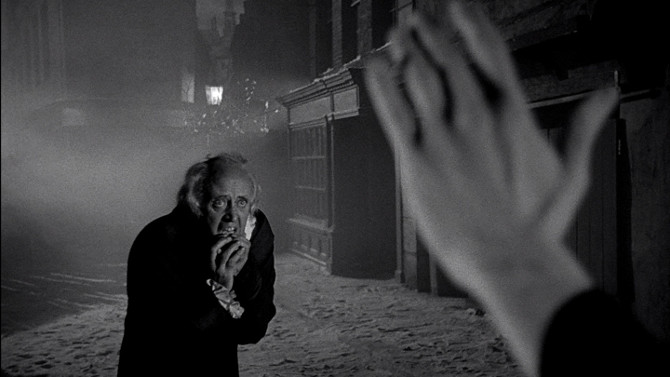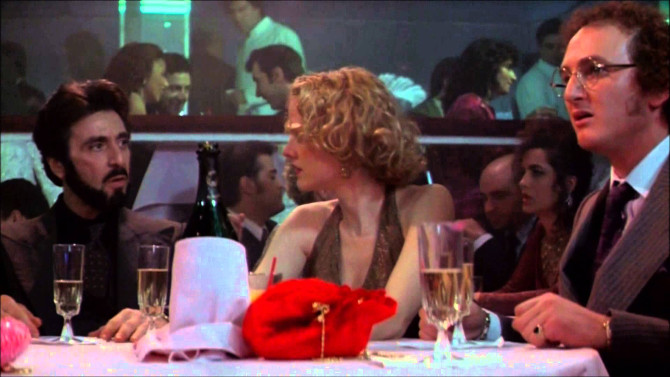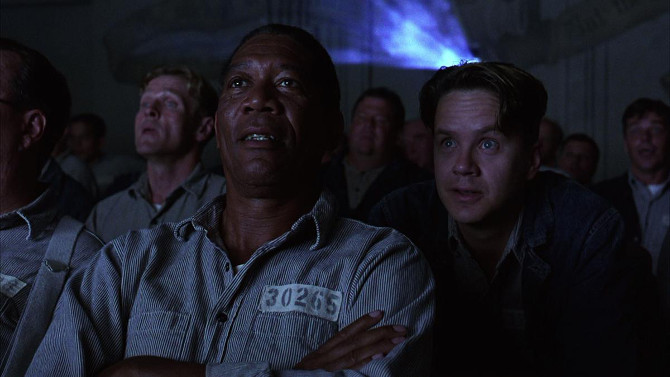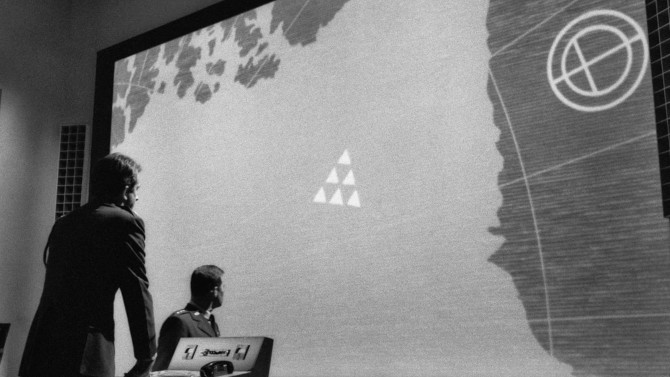
Safety First
Like a severe and utterly serious version of Stanley Kubrick’s 1964 satirical dark comedy Dr. Strangelove or: How I Learned to Stop Worrying and Love the Bomb, you would think that Fail Safe would have been the original release in theatres that was then later spoofed, yet that is not the case. Released approximately six months later in the same year, as you might imagine, it led to very poor returns at the box office – dare I say it (as the film deals with this subject matter)... it was a bomb! Despite that, over time, it has become a bonafide classic. Based upon Eugene Burdick’s 1962 novel of the same name and directed by Sidney Lumet (Dog Day Afternoon), he introduces us to our main players by way of little vignettes.
-
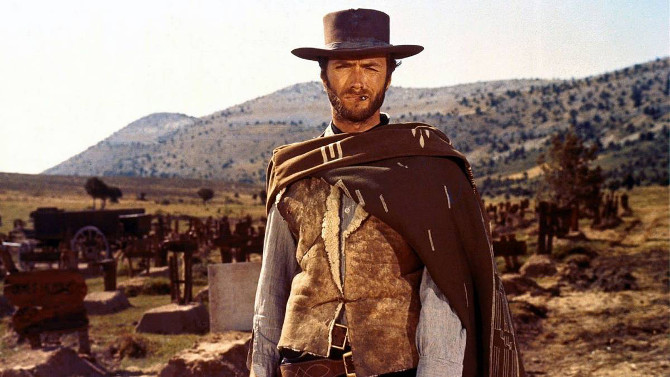
The Man with No Name
A Fistful of DollarsDecember 18, 2016Perhaps one of the most iconic introductions to a character finds Clint Eastwood’s Man with No Name riding into a dry, vile town, wearing the now legendary garb – dust covered poncho, brown gaucho-style hat, black jeans, spurs, and a Colt in his trusty holster (the stubby cigars will come a little later). Stopping for a drink of water, he takes in the violent, melancholic locale, where people gaze at him in a distrusting and ominous way through their wooden shutters, and children are shot at in the street by thuggish individuals. The first of what would become the "Dollars Trilogy" (or "The Man with No Name Trilogy"), A Fistful of Dollars, despite its now celebrated status, was poorly received by most North American and British critics when originally released. Once again showing how time is a fickle thing, the term Spaghetti Western (this type of motion picture), was first coined as a negative, disparaging term (ridiculing the European product for being of poorer quality to their American counterparts) – though today, it is generally thought of as an endearing and highly positive term. Directed by Sergio Leone, its unique visual style (beautifully framed close-ups that differ from the typical Hollywood use of the technique, as well as his then unorthodox use of viewpoint that places us in the moment over Eastwood’s gun), and attempt to move away from the traditional American tropes of the western, is now viewed as the beginning of the rejuvenation of the historic genre.
-
Star Pick with Kim Campbell
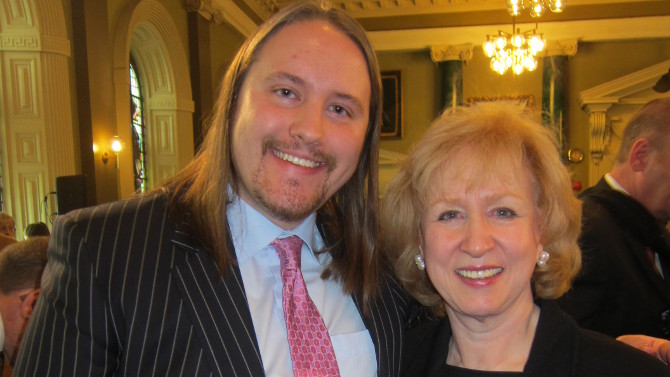 Here’s to Christmas SpiritsA Christmas CarolDecember 13, 2016
Here’s to Christmas SpiritsA Christmas CarolDecember 13, 2016A little while ago, I was fortunate enough to be able to interview The Right Honourable Kim Campbell, the 19th Prime Minister of Canada (and to date, the only female to land the top job), about her favourite film. Transporting me to ‘the most wonderful time of the year’, she illuminated me as to her Christmas program watching traditions. She explained that, each time December comes around, she makes time to gather round the television with her entire family and watch, back to back, The Muppet Christmas Carol starring Michael Caine, followed by the classic 1951 version of A Christmas Carol, with Alastair Sim taking on the legendary role of Ebenezer Scrooge. She lit up talking about her family custom, clearly cherishing the memories made by gathering the family to watch these two festive films. As I am only able to review one film as part of the Star Picks section, I will be looking at the 1951 incarnation of the Charles Dickens’ tale. Make sure to track down the Muppet version as well to get the full Prime Ministerial experience. Arguably the most iconic version of the miser, Alastair Sim has been etched in the collective psyche as the perfect Scrooge. With his receding hairline, bulbous eyes and curmudgeonly attitude, it is easy to buy him as a true hater of all things Christmas.
-
Star Pick with Christian de la Cortina
 Show Me the WayCarlito's WayDecember 6, 2016
Show Me the WayCarlito's WayDecember 6, 2016Following the special screening of the Canadian independent film Generation Wolf at the historic Port Theatre in Cornwall, Ontario, I sat down with filmmaker Christian de la Cortina – who co-wrote, produced, directed and starred in the entertaining crime flick. Cortina, who works out of Quebec, has had a fruitful start to his career, dabbling in many French language television series and miniseries, including La Marraine, 19-2, Mon Ex à Moi and O’, as well as procuring roles in American productions being filmed in La Belle Province, including last year’s highly touted Academy Award nominee Brooklyn. 2008 was a watershed year for the man, as he released his first feature film – Transit, which he also produced, directed, wrote and starred in. Seeing it as an opportunity to concoct intriguing roles for himself and others (as he did not want to be placed in a position where he may only receive similar roles throughout his career – in other words, typecast), Generation Wolf can be seen as a successful extension of that plan – as it depicts an engaging story that is chock full of richly drawn characters.
-
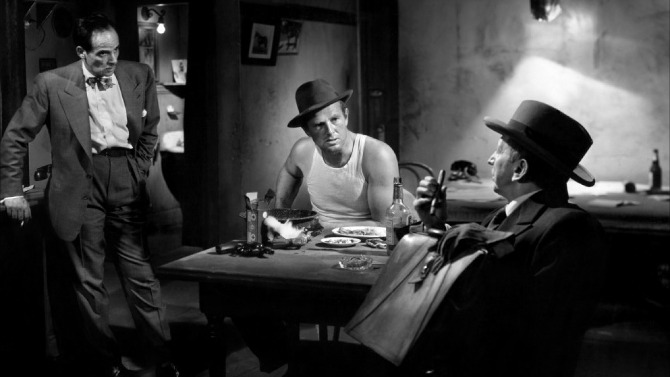
Welcome to the Jungle
The Asphalt JungleNovember 28, 2016Perhaps one of the best descriptive titles to ever come out of Hollywood is The Asphalt Jungle (even though it is the title of the book the film is based on). Directed by John Huston, the 1950 title vividly exemplifies film noir: a dark, gritty, dog-eat-dog world – its only difference from the animalistic wilderness is the stark stone and cement infrastructure that frames the vice-filled world. Oh, and are there vices! Each character has his or her own cross to bear – dragging them down into a world of sin and sorrow. As Doctor Erwin Riedenschneider (Sam Jaffe), the mastermind of the heist, puts it: "One way or another, we all work for our vice". Youthful gals, wealth and extravagance, liquor, gambling on the horses, and an infatuation for a specific man are just some of the misdeeds you’ll find in this movie. The above mentioned Doctor, recently released from prison, has devised an intricate heist – the take, at least one million dollars. Reaching out to a name he heard bandied about on the inside, he visits a bookie by the name of Cobby (Marc Lawrence). Needing the proper backing, a meeting is set between the man with the plan and a prominent, albeit shady lawyer, Alonzo Emmerich (Louis Calhern).
-
Star Pick with Tyler Murree
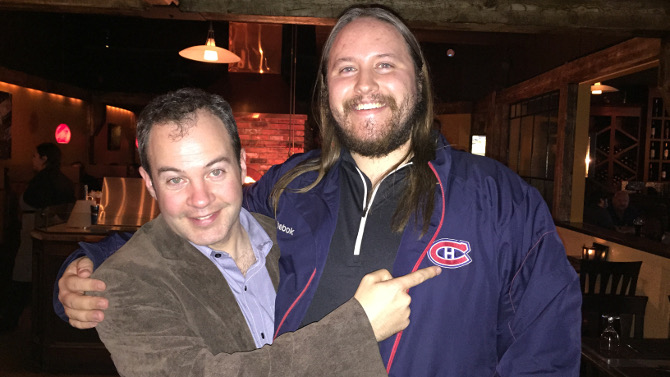 Catch a Rising StarThe Shawshank RedemptionNovember 25, 2016
Catch a Rising StarThe Shawshank RedemptionNovember 25, 2016Cornwall’s second most famous actor, Tyler Murree, is proud to hold that title, following behind some guy by the name of Ryan Gosling. Recently, he spoke of his childhood dream that one day he would be able to watch one of his films on the big screen at the historic Port Theatre in his hometown of Cornwall, Ontario. An actor of the stage and small screen, Murree has had a solid career in the two realms. The man has graced the stage as part of both large Toronto productions and glorious Broadway ensembles. He took on roles in Les Misérables; The Lord of the Rings: The Musical; Dirty Dancing; The Lion King, and other such productions. Placing him in front of hundreds of thousands of people across North America, the performer has created unique characters in the truest form of acting. Similarly, Murree has dabbled in the world of television. He has had parts on quality BBC productions in Orphan Black and Copper, while also popping in on Canadian productions such as Murdoch Mysteries and Kim’s Convenience, as well as taking on roles in several Nickelodeon series, including Make It Pop and The Other Kingdom, to name but two.
-
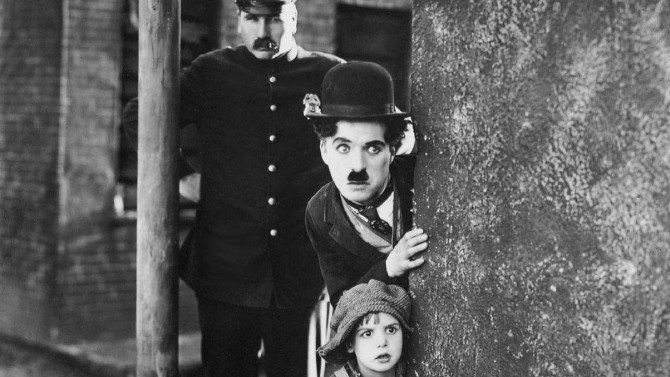
What a Great Kid!
The KidNovember 20, 2016There is perhaps no better synopsis of Charlie Chaplin’s first full length feature film, 1921's The Kid, than that provided by the filmmaker himself. As the motion picture begins, we read the Title Card: "A picture with a smile - and perhaps, a tear". Already an international superstar at the time, Chaplin decided to give his iconic character of The Tramp a full length feature. Taking five and a half months to shoot the film, it once again reiterates just how much of a perfectionist the man was (as movies during this time were nearly never granted this sort of shooting schedule). Similarly, like the rest of his projects, Chaplin writes, directs, produces, acts in and composes the music for this one. The loveable vagabond that is The Tramp (Chaplin) this time finds himself with a baby in hand. A Woman (Edna Purviance), having had a child out of wedlock and with nowhere to turn, leaves her newborn in a wealthy family’s car – hoping that they will adopt it. In a piece of unfortunate happenstance, the car is stolen by a pair of criminals. Dumping the baby at the first possible chance, The Tramp then stumbles upon it in a filthy alleyway.

